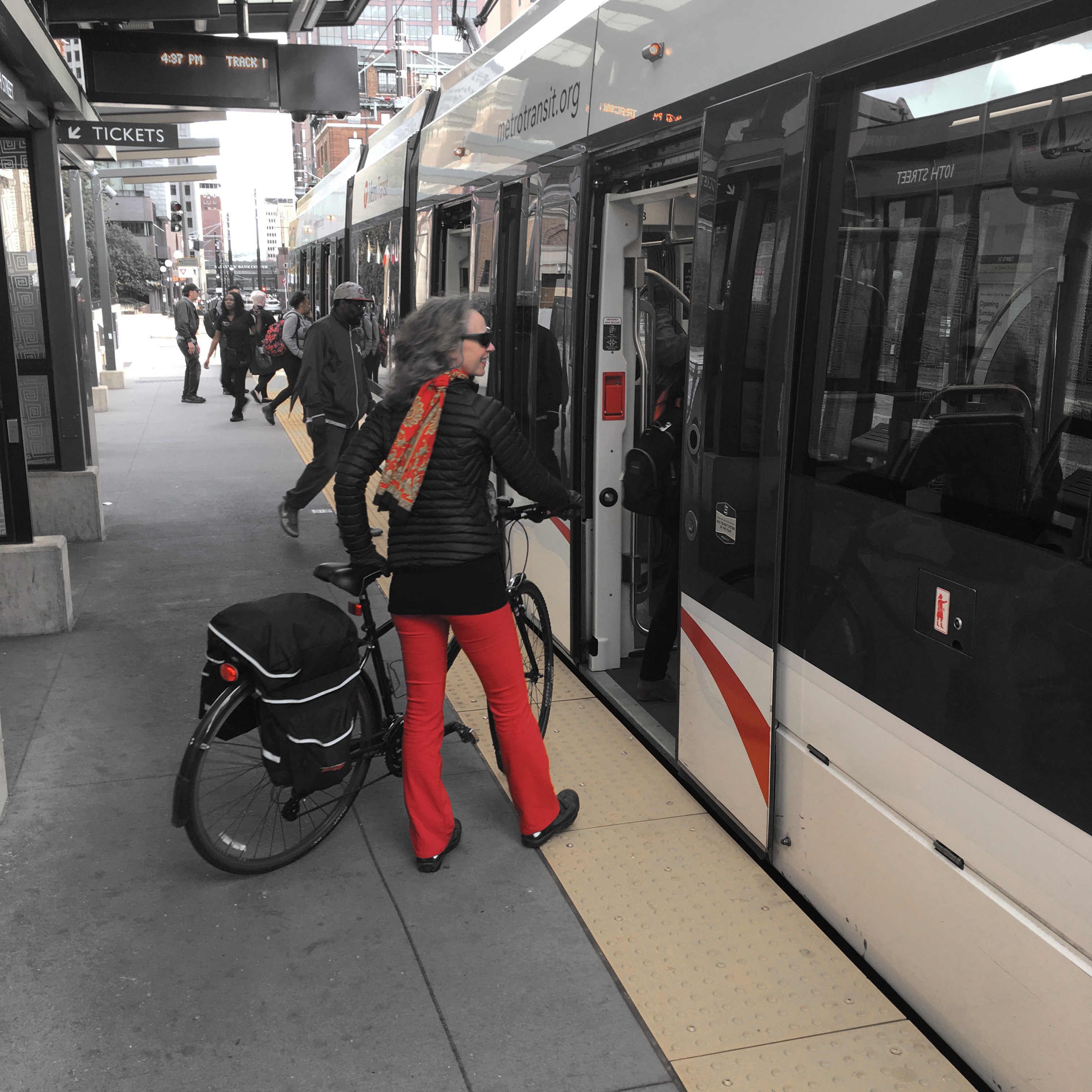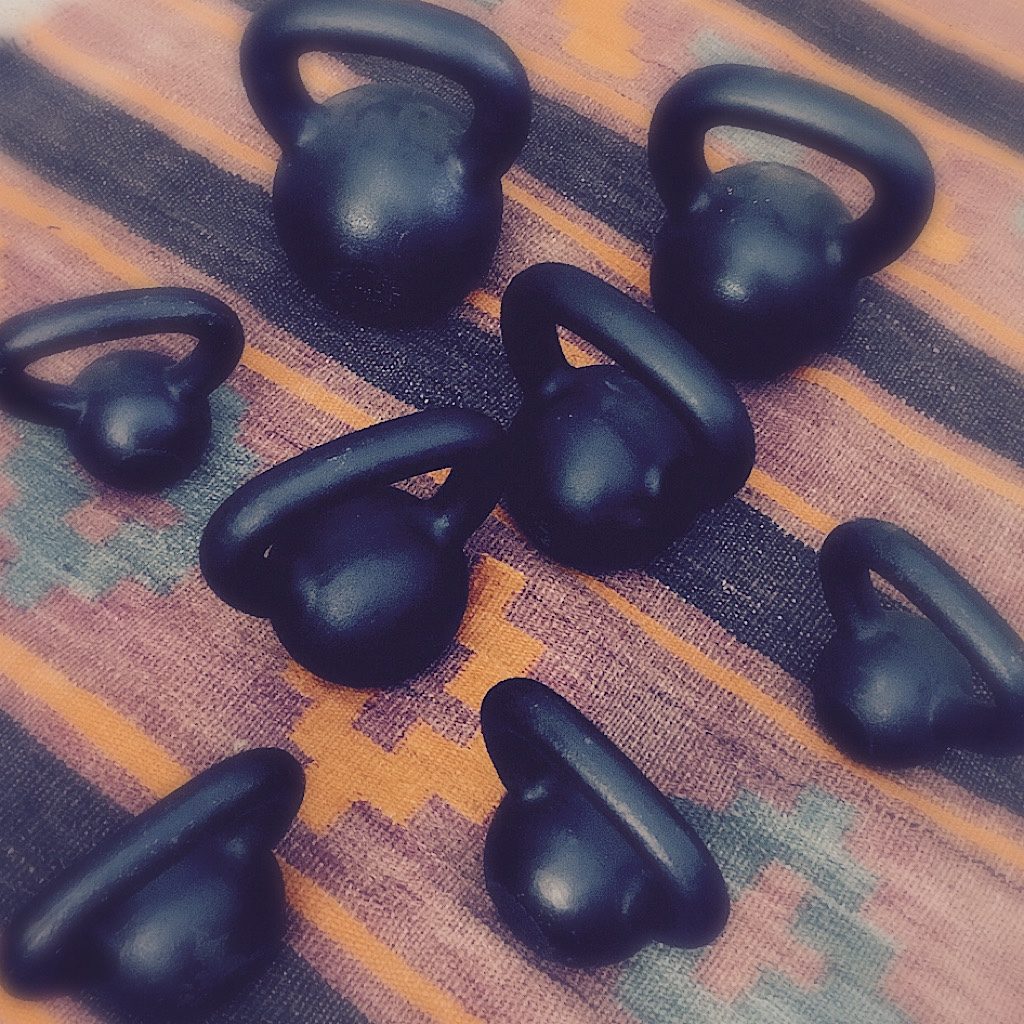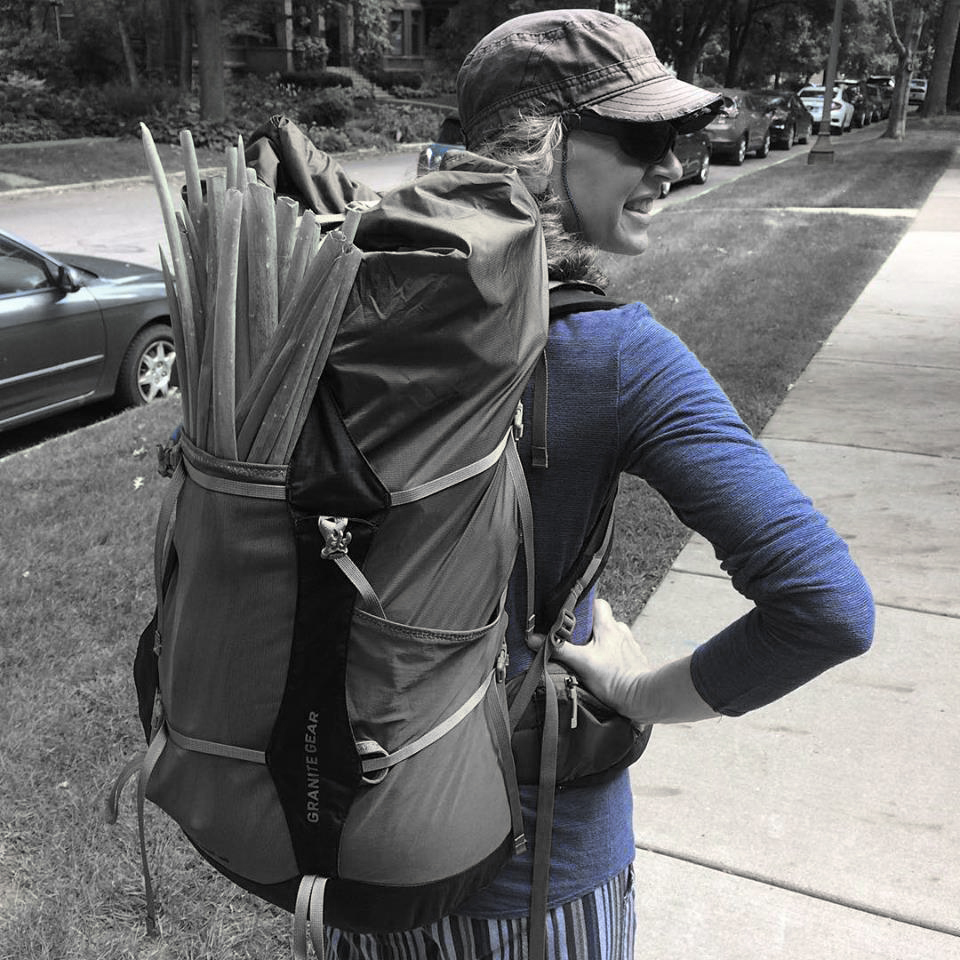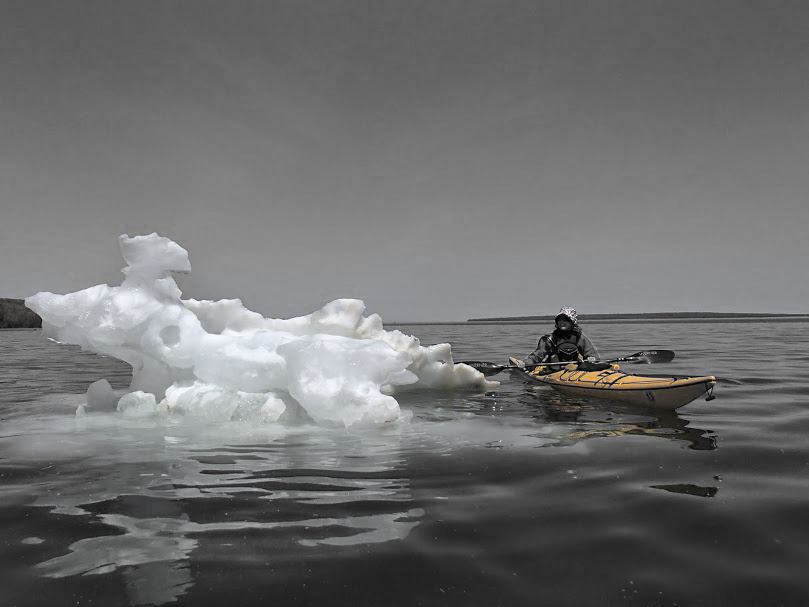Training is everything. The peach was once a bitter almond; cauliflower is nothing but cabbage with a college education.
Mark Twain

At my last Zoom presentation, a participant asked how do you get in shape for a long walk? I published this blog less than a week before I left for the Te Araroa and I thought it would be a good idea to revisit it!
The short answer to the question “how do you get in shape for a thru-hike?” is by being in shape, which sounds much harder than it is! What I mean is take on the attitude of having physical fitness – in all forms – a part of your being.
How does one do that? Well, by choosing each day to move.
The list below covers most things I like to do to make myself strong enough to manage the rigors of a thru-hike, though Richard and I have lately been doing a daily morning routine with Russian Kettlebells.
Bells are lifted, swung, and pivoted around the body in orbits and figure eights. A series of kettle bell activities, along with planks and pushups, may very well be the number one routine worth adding to prepare for a thru-hike because they strengthen the core and improve balance – and let’s face it, you look like a bad ass swinging them!
Though a warning that you should find an instructor to ensure your technique is proper so you don’t injure your back. Contact me if you’d like to know more about using kettle bells and read on!

I admit it. I am a bit of a curmudgeon when it comes to training. It feels too much like homework. Not that I haven’t done it. I have, and even happily. I successfully trained to run 100k with 11,000 feet ascent, to ski 31 miles uphill and down hills three different times, and to bike all the way from Saint Paul into Canada. That being said, each and every time I found that my biggest successes came when I went easier on the schedule and more intentional on the changing of my lifestyle.
You might call me an “active middle aged woman.” So when people ask how I’m training to walk the 3,000 kilometers of the Te Araroa, I usually say, “By staying active!” with a smile, though that never satisfies.
Ok, then. How about, “By walking to work every day?” They usually look at me oddly either because they realize that 20-30 miles walking per week is never going to come close to the amount of walking I’ll do over the course of five months.
Or maybe it’s because most people don’t relate to my walking every day, rain or shine, snowstorm or heat wave. It’s at about this point in the conversation when I feel like a slacker and wonder just who I think I am planning to simply warm up as I go on this 3000 km stroll. That’s more the perspective of the 20-somethings I’ll meet along the way, out-of-work or in their gap-year with young lithe bodies that can adjust fast to the conditions, and pick up long distance walking “skills” as they go.
At 53-going-on-54, that does not describe me. The not-so-young-anymore part, anyway. The out-of-work part is still TBA, though I do protest my calling myself a slacker. Welcome to my head-space!
Read next – ten reasons to add hot yoga to your thru-hike prep

Truth is, I move a lot – and in varied ways – and I find it translates more directly to my needs as a thru-hiker: to move steadily, quickly (enough) and over long periods of time.
Let’s look at the evidence:
Walking
Walking to work requires me to obviously move my legs briskly for two miles to and from my job in downtown Saint Paul. I live on Summit Hill, so it’s usually downhill to and uphill from MPR. But I have gotten creative in adding a roundabout course that forces me uphill both ways. It entails a good deal of stair climbing, and not that I’ve counted, but it comes to some 400 steps, and that’s first thing in the morning keeping my knees nice and juicy. Sure it gets my blood pumping to take them on, but what really “trains” me is the discipline of setting aside 40 minutes each morning. I have to make the time and I have to get there whether I want to or not.
Biking
I am so lucky to live in the Twin Cites with the finest network of bike trails in the country. They are heavily used even in winter. And I must point out here that Minnesota is no place for sissies; we have real winter. While I stopped commuting by bike in the winter the second year we lived here, mainly because I didn’t want to get flattened by an impatient driver, I do bike everywhere else I can get to in town, for groceries, to my friend’s houses, even when I broadcast from Orchestra Hall in Minneapolis. Biking has got to be one of the most efficient forms of exercise. It takes all the stress off the joints, builds muscle, and gets your breathe going. And look at this, without even thinking about it, by combining biking with walking I am “cross-training,”
Skiing
I do not have great form. Let’s just get that out there. My friend Rob says I look like an eggbeater, but, boy howdy, can I can push up those hills. Next to biking, cross country skiing is a sport you can participate in until you keel over of old age, frozen in a snow bank with a big smile on your face. Part of why I’ve gotten a little hinky about the whole “training” attitude is that Minnesota is home to some seriously awesome skiers – remember when our relay team stuck it to the Norwegians and nabbed gold? They were born here, popping out of their mother’s wombs with little skis on their feet. So I feel pretty self-conscious about my late start in this marvelous sport. It’s no wonder the Nordic Track is offered at gyms across the country, when you ski you become a four legged creature, using your arms as well as legs to propel yourself. I have never felt so fully fit then when I am skiing. Sadly, this year I have three summers in a row. Hey, that’s not sad! But I will miss ski season.

Climbing
My climbing partner Patrick is 22 years my junior. Why does he climb with me? He’s explained it’s because I never quit. Well, sometime I do, especially when leading as I simply chicken out, unnerved by fall consequences. So I am happy to be a reasonably advanced follower. Climbing is the only sport that totally and utterly focuses my mind. I am unable to ruminate on issues or even carry on a conversation when climbing. That in itself is freeing. But it also is a kind of training for all things physical because climbing asks the body to be flexible, balanced and strategic. You can’t simply possess upper body strength and muscle-it through moves; you have to plan them. Oddly enough, climbing enhances all I do even when on-air because it makes me think about how I am engaged and if I am using my body efficiently. Furthermore, climbing is the great humbler forcing me to listen to myself for signs that it’s time to quit and leave a “project” for another day.
Kayaking
I am happy in my boat on small lakes and rivers, but happiest in “the big lake” Gitche Gumee, Lake Superior. Kayaking has its own set of skills including paddle strokes, and “wet exits” and rescues and requires a keen sense of balance and a strong core. Using arm strength will just tire you out, so you have to engage your torso when moving and bracing. There is also the element of knowing your limits and leaving the lake when weather moves in, all good skills for a thru-hiker as she plans her day and creates a backup plan. My back and arms are much stronger from kayaking which translates to less stress wearing a pack day in and day out.
Listen next – Blissful Hiker podcast #53: CDT prep: getting in shape

Yoga
A few years ago, I was told that I had “advanced degeneration” in my left hip. It hurt so badly I could barely walk up the stairs and I thought a joint replacement was imminent. The docs administered a cortisone shot and then tried to figure out next steps with therapy. I was aghast at the cost for treatment so I hunted for ways to give myself PT and that’s when landed on Bikram Yoga. You may not be a fan of the namesake, but the practice is amazing. The premise is to heat a room to about 108 degrees and work through a series of 26 poses in the course of 90 minutes. It is extremely difficult to do correctly but has meant a world of difference to my joints. Hot yoga worked like a charm and I am pain-free from whatever locked up my hip muscle/tendon/ligament. Again, what captures me – in addition to the physical benefits – are psychological ones that yoga is a “practice.” When you bring to class an attitude of non-judgment and simply do your best, you stay in the moment and take pleasure in the surprises that await. Translated into thru-hiking it means I don’t so much seize the day and force it into my pre-conceived ideas, but I allow the day to unfold. Obviously not without planning or an assessment of what I realistically think I can accomplish, but with more of a sense of wonder and acceptance.
…So, do I “train?” or do I just “do?”
It’s hard to say. Though I wouldn’t plan to run a marathon anytime soon as that kind of continuous pounding would require more focus on the specific requirements of non-stop continuous pounding.
Maybe what I am really saying is not that I don’t want to train, but that I am not looking for an end result of a specific event – a marathon, an ultra, a fkt (ok, maybe when I’m 80 I’ll go for the record somewhere) – but rather I want more all-encompassing result – to be strong and healthy enough to keep walking and climbing and biking and paddling and stretching – as long as possible. And that’s why training for the Te Araroa is an every day thing, with each activity feeding on the physical, psychological and emotional demands that I will encounter.
And frankly, it’s just a whole lot of fun, too!


11 Responses
Well, that answers my question!
busted! it was YOU! just like self taping every day 😉
Your observations so resonate!! What starts out as training to improve performance in say an ultramarathon becomes a search for races so that one can train. And its not an obsession, it’s is a way not only of keeping fit but, once past the initial pain of getting fit, a source of wellbeing, mental acuity, a problem solver. You only realise how much you enjoy it when an injury prevents it. Yes, a part of life, at whatever age and level😊
yes! at all levels. I work hard in front of my mic or editing software, and then need to move. It makes me feel good body, mind and spirit. But those kettle bells, whoa! a LIFE CHANGER! I call ‘gitups’ my anti-aging cream. haha
Your workout is on par with any Olympian. I stand in awe.
So interesting to read about it.
M
haha, not really, just keep things varied, which I think is key. All sorts of activities count, gardening, sauntering, cleaning the house! 🐥👣🎒
One of the best posts thus far~
woot! knew you’d love it!